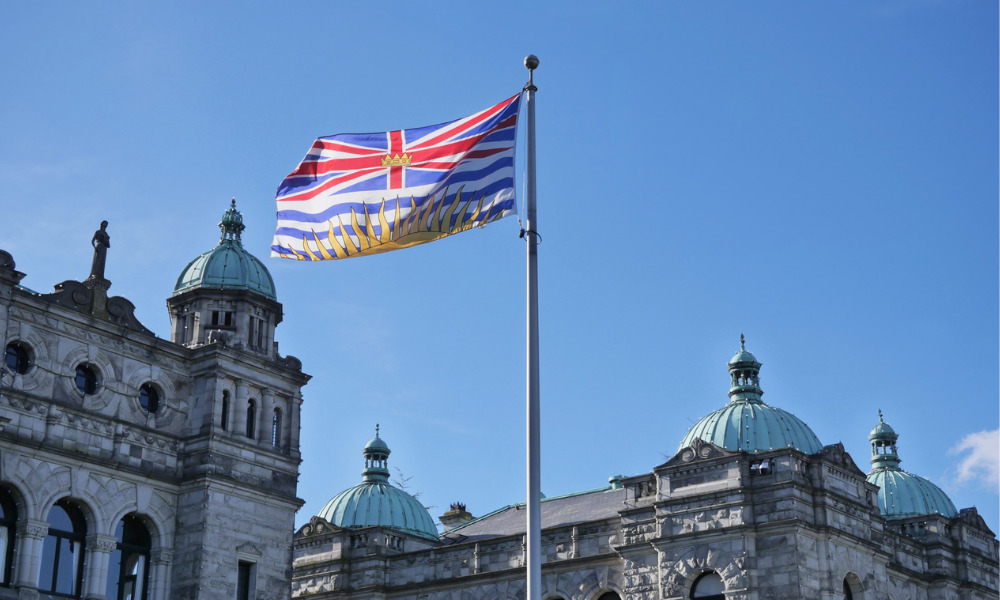Lawyers hate the word sales, but effective selling requires the same traits shared by truly influential lawyers

Lawyers hate the word sales, but effective selling requires the same traits shared by truly influential lawyers
We’re all in sales now . . . Or so says Daniel Pink in his book To Sell is Human. He calls it “non-sales selling” and refers to it as “persuading, influencing and convincing others in ways that don’t involve anyone making a purchase.” The book is a timely read this month as Canadian Lawyer celebrates the “Top 25 Most Influential” in the legal profession.
Sales has a bad name, though. Pink conducts a survey into the perceptions that people have of sales and salespeople. The results illustrate oh so clearly why law firms shy away from using these terms. When asked what words come to mind when people think of “sales” or “selling,” the overwhelming responses were negative: “pushy,” “aggressive” and “sleazy.” Respondents to the survey overwhelmingly pictured used-car salesmen when they thought of sales. Pink spends the rest of the book upending the myth that “sales is distasteful because it’s deceitful.” He shows how “each of us — because we’re human — has a selling instinct, which means anyone can master the basics of moving others.” This must be true for lawyers, too, (as humans) and as evidenced by the huge number of nominations for this Top 25 Most Influential.
To influence and persuade is to move others on their opinion, to part with their money or alter someone’s behaviour. As parents, we might be pleading with our kids to (please!) eat their peas or finish their homework. As friends, we might be persuading our circle to sponsor us on another one of our but-it’s-for-a-great-cause bike rides. Similarly, lawyers spend much of their day persuading clients to heed their advice, negotiating with opposing parties to accept their client’s terms or advocating their client’s position in front of a judge. In fact, reading any law firm website and the expert bios they list shows just how much selling is a part of a lawyer’s life.
Pink takes the “Always Be Closing” adage of sales ABCs (cue the brilliant clip of Alec Baldwin “motivating” the sales team in the film Glengarry Glen Ross) and proposes a new ABC: Attunement, Buoyancy and Clarity.
The Top 25 list is about identifying those who have the ability to influence public opinion, who have shaped the laws of Canada or who hold positions that impact Canadian society in some way. As I read the nominations (or pitches) for each of the categories in which I voted, I was struck by how often these three qualities popped up as evidence.
Attunement
This trait can be described as the “ability to bring oneself into harmony with individuals, groups and contexts.”
The descriptions focused on how the person they were nominating had worked tirelessly for and within the communities on behalf of which they were advocating. Attunement is about empathy and getting into sync with your audiences to create connections, especially with those you’re trying to persuade. This seems to be about bridge making between communities or parties. Every lawyer knows how important it is, whether in negotiation or advocacy, to be inside their client’s head to understand what their position is and where their priorities lie. At the same time, the core value that a lawyer brings to their client is to also be attuned to the lawyers on the other side or the judge or arbitrator on the case. Lawyers act as the bridge between conflicting parties or as the translator between distinct communities to bring about change and influence.
Buoyancy
Buoyancy is described as “a quality that combines grittiness of spirit and sunniness of outlook.”
To remain afloat when dealing with the “oceans of rejection” inherent in persuasion, one needs a belief in what one is selling and a certain amount of pragmatism about what’s even possible. This belief in convictions enables the influencers to remain buoyant and positive even when faced with the inevitable obstacles, rejections and negativity in their careers. Twinned with pragmatism, these influencers are working within the boundaries of what’s possible — or what they’ve found to be possible in influencing change. For most of us involved in persuading people to think or do something different, we know that effecting change is a slow process. It is often about changing minds and changing behaviours one person at a time, one interaction at a time. Buoyancy is, therefore, about knowing you win some and you lose some — and learning about what works and what doesn’t in the communities and environments in which you practise.
None of these nominees would have been selected if they had given up on the cause. Each has found a way to hold on to a healthy dose of optimism to remain buoyant about affecting change.
Clarity
This trait can be described as “the capacity to make sense of murky situations.” Daniel Pink maintains that, to move others effectively, you must work at uncovering “challenges they may not know they have.”
Those working or advocating on behalf of the homeless, the disadvantaged and those without a voice are often described as finding new ways to explain to others about the problems the groups face. By building awareness and showing how others can help, these influencers have created clarity where others might see impossible situations.
In the innovation sphere, it often sounds like we are the harbingers of doom in our messages to our firms. Pointing out problems that firms didn’t know they had is not enough to bring about the change that’s needed. To be truly effective in influencing firms, innovators must turn those challenges into nugget-sized and achievable actions. Everyone prefers Superman to the Sandwich-board guy with his “The End is Nigh” message. If we want to convince and persuade, we must work at crafting both a clear message of what the problem is and how it will and can be solved by those we need to get on board.
So, congrats to this year’s Top 25 Most Influential and to all those nominated for having mastered your ABCs in the art of non-sales selling










